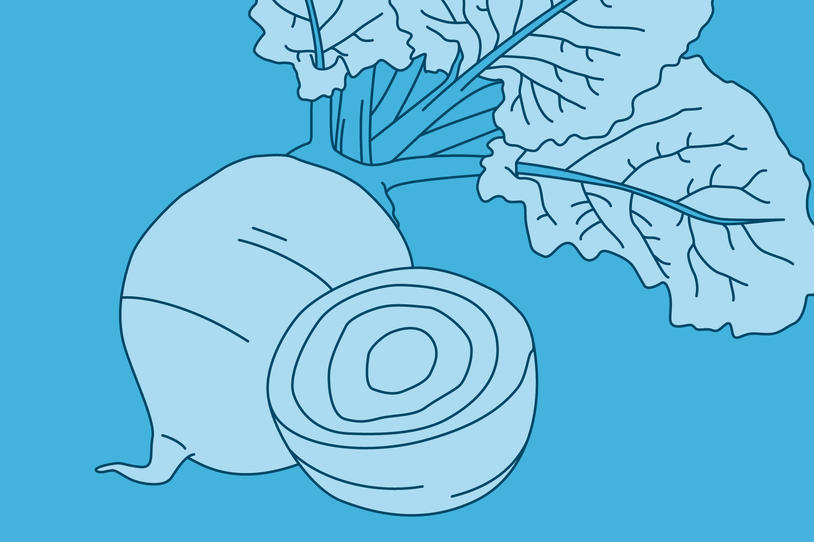
No one diet can treat Parkinson's disease, but medication might require mealtime considerations and dietary changes may help ease certain symptoms. Your physician or a dietitian can design a healthy, balanced diet to fit your needs and improve well-being.
Healthy Eating
There is no one recommended way to eat with Parkinson's disease, but a balanced diet full of fruits and vegetables promotes health and well-being for everyone.
One part of a healthy diet is eating foods with antioxidants. These "good for you" molecules help protect cells from stresses such as air pollution, cigarette smoke and even the process of converting food to energy. Antioxidants are found in fruits, vegetables, grains, nuts, dark chocolate and some beverages, such as red wine, coffee and tea.
For more on diet and Parkinson's, download our free guide here.
Eating to Ease Symptoms
For some Parkinson's symptoms, the first step in treatment is to adjust your diet.
- Constipation: Drinking more fluids and eating more fiber can help maintain regularity. Aim to drink six to eight 8-ounce glasses of water per day. Warm liquids, especially in the morning, can stimulate bowel movements. Dietary sources of fiber consist of fruits (with the peel), vegetables, legumes, whole grain breads and cereals. Most of these are high in antioxidants, as well.
- Low blood pressure: Increasing fluid and salt intake will boost blood pressure, but talk with your physician, especially if you have heart or kidney problems. Fluids might include water as well as those with more salt, such as Gatorade and V8 juice. Limit caffeine and alcohol as these can be dehydrating and lower blood pressure. Eating frequent, small meals also can smooth blood pressure fluctuations.
- Swallowing problems (coughing, choking or food feeling "stuck"): A speech therapist can recommend diet changes and other strategies to help. Diet changes might include softening food or adding foods that will stimulate swallowing (such as seasoned, sour or carbonated foods). Strategies might include taking smaller bites at a slower pace or tucking your chin to your chest when you swallow.
- Muscle cramping: Eating yellow mustard, which contains the spice turmeric, or drinking tonic water, which contains quinine, may help with muscle cramps. Others say salt, vinegar or pickle juice works for them. Staying hydrated may prevent or reduce cramping.
Talk to your doctor or a dietitian to craft a diet that helps you manage your Parkinson's symptoms and feel energized and healthy.
Medication and Diet
The medication levodopa (Sinemet) is a protein building block, so it competes for absorption with other proteins. Taking levodopa with high-protein meals, such as meat and fish, may reduce how much of the drug gets into your system and how well a dose works. Early in your disease, especially when symptoms are mild, you may have no problem taking levodopa around mealtime. If medication doesn't seem to be working its best, or if it's wearing off before it's time for your next dose, your doctor may recommend taking medication on an empty stomach — 30 minutes before or 60 minutes after a meal. Another option is to save higher amounts of protein for the end of the day, when controlling symptoms may not be as critical.
Iron supplements can decrease absorption of levodopa. If you take those, do so at least two hours before or after taking levodopa.
Fava beans contain levodopa, so adding them to one's diet is an attractive idea. Unfortunately, the amount of levodopa in fava beans is unknown and likely minimal.
Dopamine agonists (pramipexole, ropinirole, rotigotine) do not require any diet adjustment. MAO-B inhibitors (rasagaline, selegiline) increase tyramine, and combining them with foods high in tyramine — usually aged cheese and cured meats — could raise blood pressure. These foods don’t need to be eliminated from the diet altogether, but should be eaten in moderation.
Research into Diet
Some studies are looking at the effects of diet on Parkinson's symptoms and medication effects. Visit The Michael J. Fox Foundation (MJFF) online study-matching tool Fox Trial Finder to find studies on diet and other areas.
Studies such as the MJFF online Fox Insight study are gathering data on many aspects of life with Parkinson's, including diet. Fox Insight participants (with or without Parkinson's disease) complete surveys and questionnaires that are helping researchers learn more about the disease experience.
The medical information contained in this article is for general information purposes only. The Michael J. Fox Foundation for Parkinson's Research has a policy of refraining from advocating, endorsing or promoting any drug therapy, course of treatment, or specific company or institution. It is crucial that care and treatment decisions related to Parkinson's disease and any other medical condition be made in consultation with a physician or other qualified medical professional.

Be Part of the Answer
You have the power to impact your future and the future of millions living with Parkinson's disease. Explore clinical research participation today.